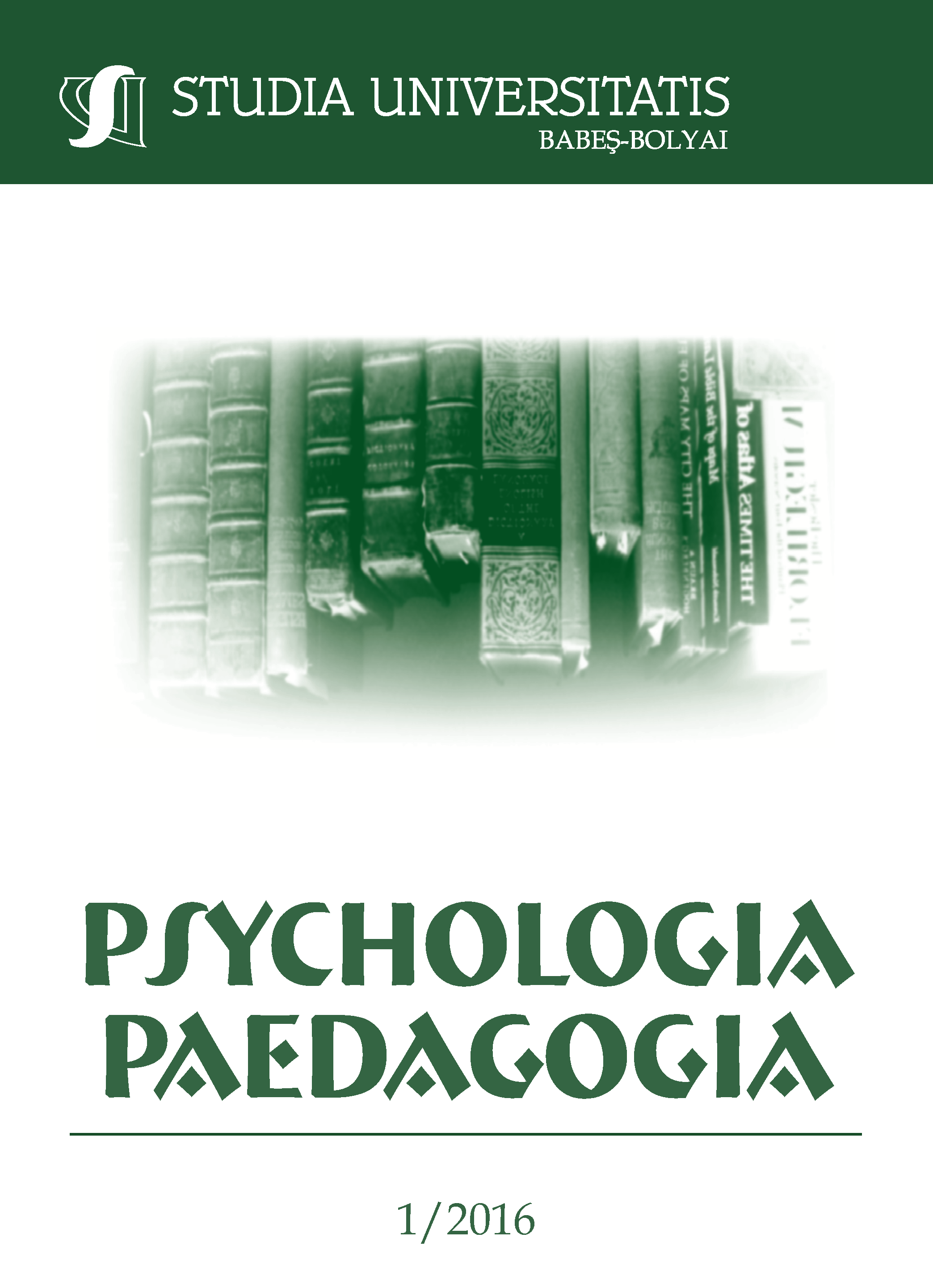COOPERATIVE LEARNING AND MINDSET WITH YOUNG STUDENTS
Keywords:
cooperative learning, growth mindset, social skills.Abstract
Cooperative learning has been an important philosophy of teaching and learning for many years (Johnson & Johnson, 2013). The concepts of cooperative learning are now more important than at probably any other time in education. The skills necessary for the future go beyond the core subjects taught in schools (Wagner, 2008). Skills like communication, critical thinking, problem solving, innovative thinking, creativity, teamwork, collaboration, and negotiating are far more important than are the skills used to memorize facts for tests or learning the basics (Caine & Caine, 2011; Pink, 2006; Wagner, 2008; Zhao, 2013). Additionally, students who succeed in school and in life tend to be those students who can persevere during times of difficulty (Duckworth, 2013; Dweck). We need our future leaders of this world to understand how to get along with other people and solve problems in more effective ways than the use of bombs (Fitzgerald, 2013; Glasses, 2006). Education has to change or our students and our nation will be left behind (Pink, 2006; Wagner, 2008).
This study was developed to determine if first grade students could learn complex social skills and develop positive mindsets. We worked with a class of first grade students for eight weeks introducing three social skills and putting students into cooperative groups to solve complex issues. The results were encouraging and point to the idea that first grade students can grow in the positive mindsets and learn to work cooperatively with their peers. These students give us hope for our future.
ZUSAMMENFASSUNG. Kooperatives Lernen ist seit vielen Jahren eine wichtige Philosophie des Lehrens und Lernens gewesen (Johnson & Johnson, 2013). Die Konzepte des kooperativen Lernens sind jetzt wichtiger als bei wohl jedem anderen Zeitpunkt in der Bildung. Die Fähigkeiten, die für die Zukunft nötig sind, überschreiten die Kernthemen, din in den Schulen gelehrt sind (Wagner, 2008). Fähigkeiten wie Kommunikation, kritisches Denken, Problemlösung, innovatives Denken, Kreativität, Gruppenarbeit, Zusammenarbeit und Verhandlung sind weit wichtiger als die Fähigkeiten verwendet, um auswendig Fakten für Tests oder die Grundlagen zu lernen (Caine & Caine, 2011; Pink, 2006; Wagner, 2008; Zhao, 2013). Zusätzlich Studenten, die in der Schule und im Leben erfolgreich sind, sind in der Regel diejenigen, die in Zeiten von Schwierigkeiten beharren können (Duckworth, 2013; Dweck). Wir brauchen, dass unsere zukünftigen Führer dieser Welt verstehen, wie man mit anderen Menschen auskommen sollte und Probleme in einer effektiver Weise als die Verwendung von Bomben lösen (Fitzgerald, 2013; Glasses, 2006). Bildung muss sich ändern oder unsere Schüler und unsere Nation werden zurückgelassen sein (Rosa, 2006; Wagner, 2008). Diese Studie wurde entwickelt, um festzustellen, ob die Erstklässler komplexe soziale Fähigkeiten und positive Mentalitäten entwickeln könnten. Wir arbeiteten mit einer Klasse von Erstklässlern acht Wochen, führten drei soziale Fähigkeiten ein und setzen die Schüler in kooperativen Gruppen um komplexe Probleme zu lösen. Die Ergebnisse waren ermutigend und weisen auf die Idee, dass die Erstklässler in den positiven Mentalitäten wachsen können und lernen, kooperativ mit ihren Kollegen zu arbeiten. Diese Schüler gaben uns Hoffnung für unsere Zukunft.
Schlüsselwörter: kooperatives Lernen, Wachstum Mentalitäten, soziale Fähigkeiten
References
Caine, R.E., & Caine, G. (2011). Natural learning for a connected world. NY: Teachers College Press.
Creswell, J.W. (2003). Research Design. Qualitative, Quantitative and Mixed Methods Approaches. Thousand Oaks: Sage Publications
Duckworth, A. (2013). The significance of grit: A conversation with Angela Lee Duckworth. Conducted by Deborah Perkins-Gough.
Dweck, C. (2006). Mindset: The new psychology of success. New York: Balentine.
Fitzgerald, C. J. (2013). Caring our way to more effective learning. Procedia Social and Behavioral Sciences. Vol. 76.. Pp. 341-345. Fifth International Conference EDU World 2012. Education Facing Contemporary World Issues.
Glasser, W. (2006). Every student can succeed: Finally a book that explains how to reach and teach every student in your school. Mosheim, TN: Black Forest Press.
Greenwich Public Schools. n.d. Transdisciplinary Teaching. http://www.greenwichschools.org/page.cfm?p=6697.
Hattie, J. (2009). Visible learning. London: Rutledge.
Johnson, D.W., & Johnson, F.P. (2013). Joining together: Group theory and group dkills (11th Ed.). Boston: Allyn & Bacon.
Johnson, D.W., Johnson, R., & Holubec, E. (2013). Cooperation in the classroom (8th ed.). Edina, MN: Interaction Book Company.
Piaget, J. and Inhelder, B. (1966). The psychology of the child. 2nd English Edition 2000. NY: Basic Books.
Pink, D. 2006. A Whole New Mind: Why Right-Brainers Will Rule the Future. New York: Penguin Group Inc.
Popa, C. 2005. Principalii parametri de analiză a grupurilor cooperante. (Main parameters of analyzing cooperative learning groups). Analele Universităţii din Oradea, Fascicula Departamentului pentru Pregătirea şi Perfecţionarea Personalului Didactic, Seria Psihologie si Psihopedagogie specială - Pedagogie – Metodică, tom IX. Oradea: Editura Universitatii din Oradea.
Popa. C. 2008. Modalităţi de utilizare a designului cooperant S.T.A.D. în activităţile cu studenţii. (Approaches in using S.T.A.D. cooperative design) In the volume Tradiţii, valori şi perspective în ştiinţele educaţiei (coord. Muşata Bocoş, Vasile Chiş, Ioan Albulescu, Cristian Stan). Cluj-Napoca: Editura Casa Cărţii de Ştiinţă.
Popa, C. 2010. Învăţarea prin cooperare – aplicaţii la clasele a III-a şi a IV-a (Cooperative Learning – applications for 3rd and 4th grade). Bucureşti: Editura Didactică şi Pedagogică.
Sousa, D. How the brain learns. (2011). Thousand Oaks, CA: Corwin Press.
Vygotsky, L. S. (1978). Mind in society: The development of higher psychological processes. Cambridge, MA: Harvard University Press.
Wagner, T. (2008). The global achievement gap. New York: Basic Books.
Zhao, Y. (2012). World class learners: Educating creative and entrepreneurial students. 1st Edition. Thousand Oaks, CA. Corwin Press.
Downloads
Published
How to Cite
Issue
Section
License
Copyright (c) 2016 Studia Universitatis Babeș-Bolyai Psychologia-Paedagogia

This work is licensed under a Creative Commons Attribution-NonCommercial-NoDerivatives 4.0 International License.





